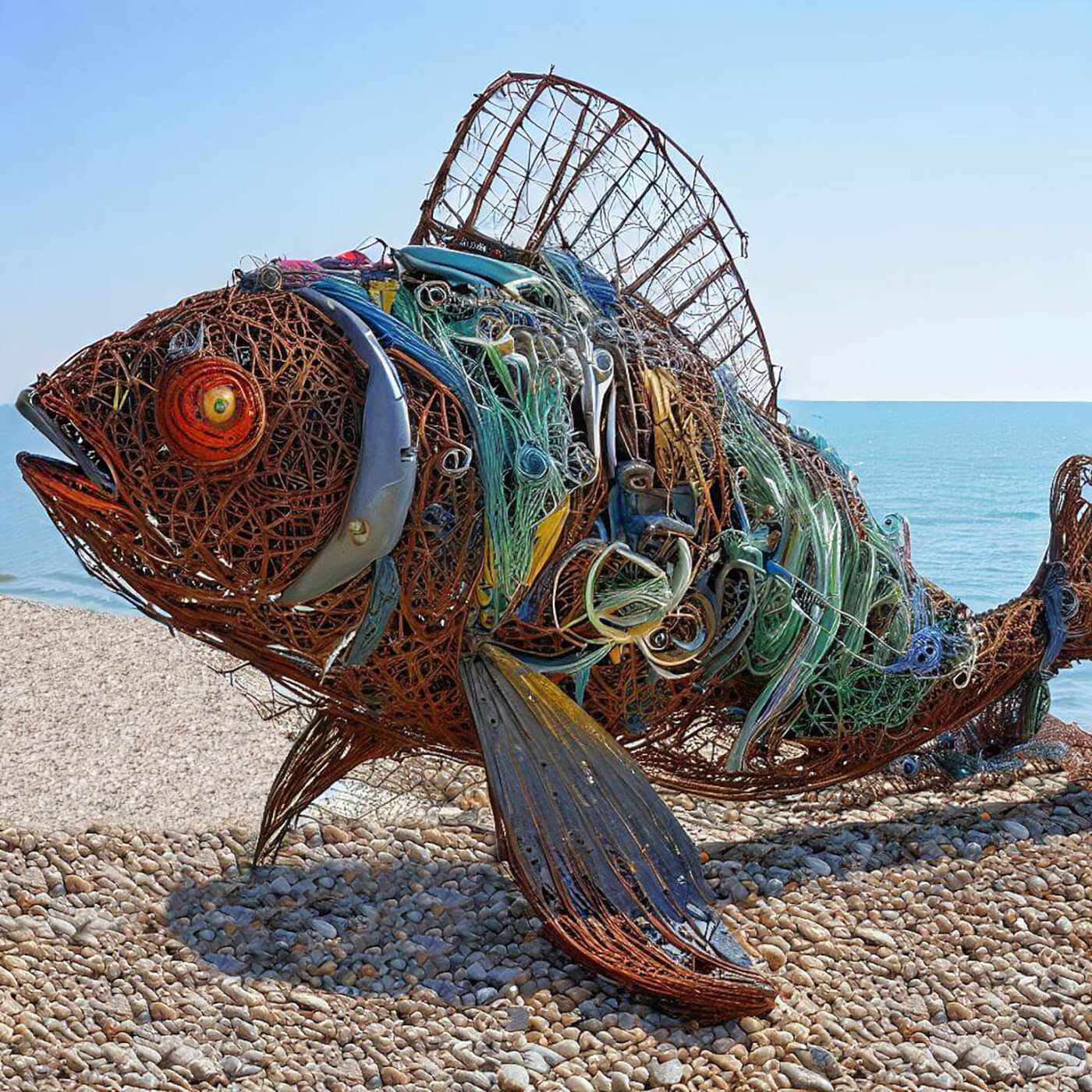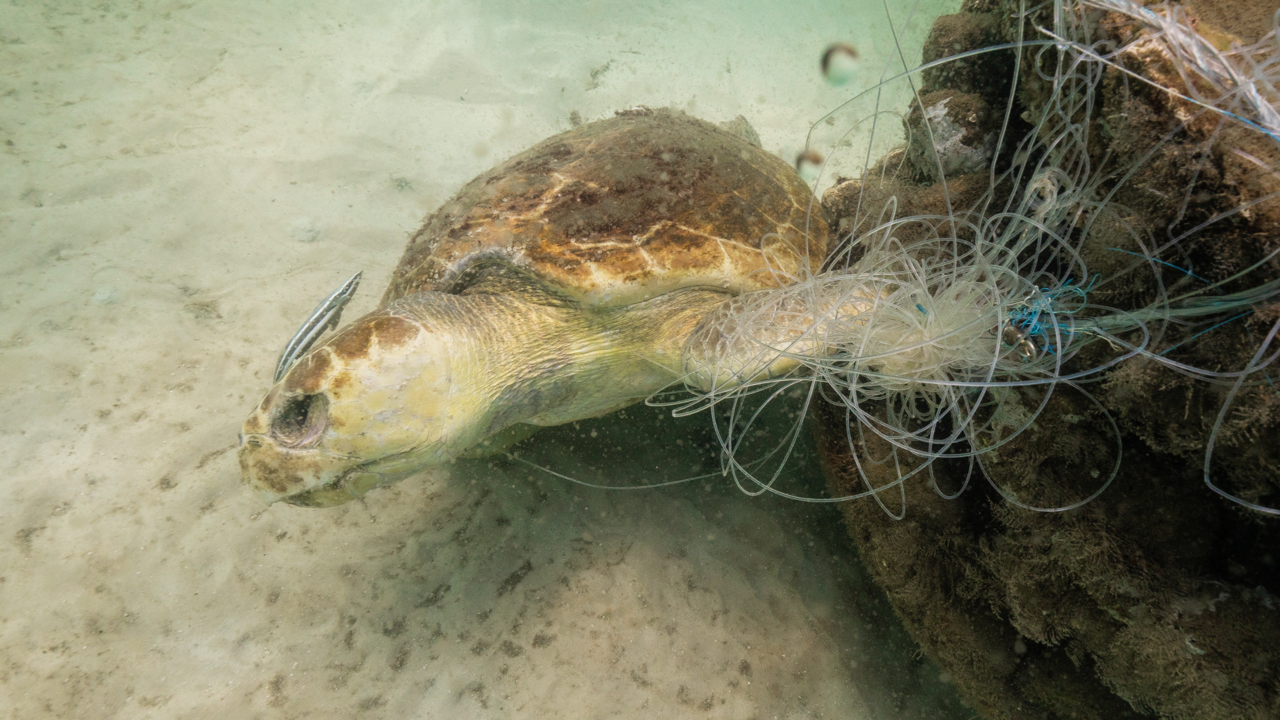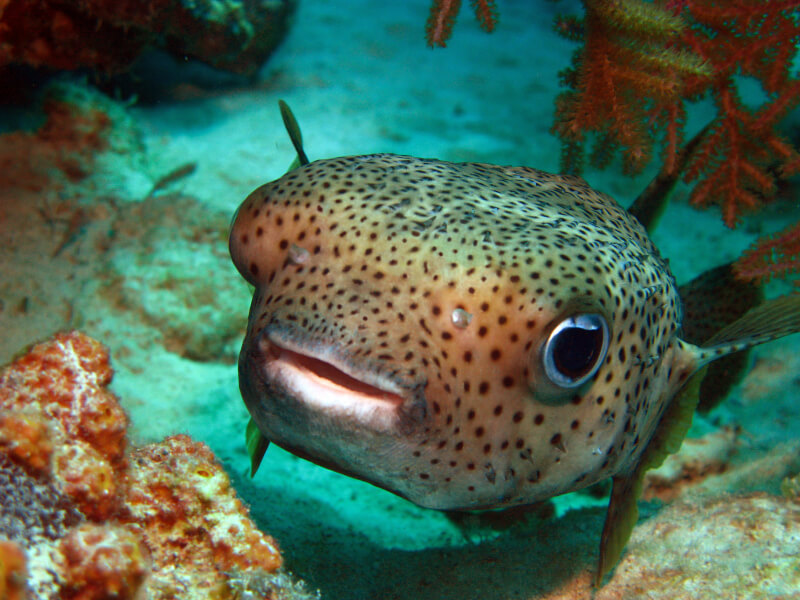Sink Any Appetite for Fish Through Empathy—Replace Statues of Humans Fishing
The profit-driven fishing industry wants people to stay caught up in its misleading marketing lines that hide horrific suffering and death. When we think of fish, it wants us to imagine them as incapable of feeling pain and fear because they don’t look like us or our dogs and cats—yet fish have demonstrated self-awareness, pain, fear, preferences, memory, and recognition. In some seaside cities and towns, there are even statues of humans fishing—like The Fisherman statue at the Woodley Island Marina in Eureka, California—that dishonor all of the fish who lost their lives.
However, when we dive deeper into empathy, we reach an awe-inspiring trench of truth: Fish—and all sea animals—are a vastly diverse array of species (many still undiscovered), each made up of countless individuals with distinct personalities, intelligence, and sensitivity. As with whaling, human attitudes are catching up and people are less likely now than in the past to support fishing. Despite this, the fishing industry destroys billions of lives every year and is devastating our oceans and their inhabitants. It’s up to us to clear the murky water of speciesism, make kind daily choices, and never eat sea life.
Urging Eureka, California, to Replace The Fisherman Statue
Ahead of Fish Amnesty Day on September 23, PETA’s sending a letter to Kim Bergel, the mayor of Eureka. We’re asking that—at a time when over 19 million Americans are refusing to support industries that slaughter countless animals and devastate the environment—the city take down The Fisherman statue and replace it with an animal-friendly sculpture. We’re even offering to donate a statue of a fish made from discarded fishing gear, like the one seen below.
We hope a different statue, such as one that shows discarded fishing gear left behind, will encourage residents and visitors to go “trash fishing” (remove trash from the sea) rather than support the deadly fishing industry. An animal-friendly work of art would also honor the lives of billions of fish killed annually for both direct and indirect human consumption (as many fish are killed to feed the fish we eat) and the lives of all the animals who are killed as “bycatch” each year—including 300,000 whales and dolphins, 50 million sharks and rays, and 250,000 turtles.
Many of the animals killed cruelly as bycatch are at the top of the food chain, which can cause entire ecosystems to collapse. A 2022 study determined that enough fishing line is lost in the ocean each year to circle the Earth 18 times and that fishers lose over 25 million pots and traps along with nearly 14 billion longline hooks, posing a huge threat to marine animals.
PETA first introduced Fish Amnesty Day—celebrated annually on the fourth Saturday in September—in 1997 to remind everyone that fish should be respected, not killed. Humans kill more fish for food each year than all other animals combined, even though fish feel pain just as mammals and birds do.
Down With Any Fishing Statue and All It Stands For: Why Never to Eat Fish
Fish are smart, social, feeling animals. They remember other individuals, build complex social networks, and can recognize themselves in a mirror. They know when they’re being watched and change their behavior accordingly. Fish have also shown symptoms resembling those of clinically depressed humans.
“The neurochemistry [between humans and fish] is so similar that it’s scary.”
—Julian Pittman, professor at the University of Alabama
Yet about 40% of fish caught are captured unintentionally and thrown back into the sea—already dead or dying.
“Eating fish and other animals is … harmful to human health. We can get everything we need … [being] vegan … including omega-3 fatty acids and protein—without any of the mercury, PCBs, or other toxins found in fish flesh. With delicious vegan varieties of every type of ‘seafood,’ people can enjoy all the familiar dishes they love without the cruelty, toxins, or cholesterol.”
—Ingrid Newkirk, president and founder of PETA
The only way we humans should be hooked on sea life is through wonder and empathy.
Take Action for Fish
Never eat fish—or any animals. Go “trash fishing” to save ocean life. If you see a statue of a human fishing, urge your local representatives to replace it with an animal-friendly sculpture.




